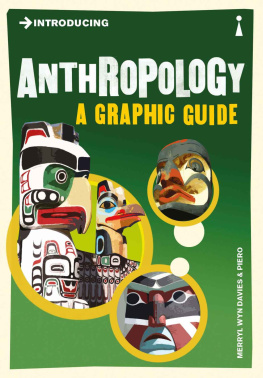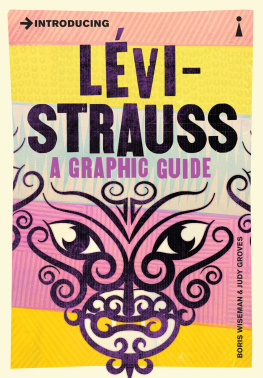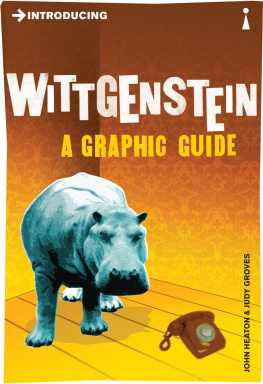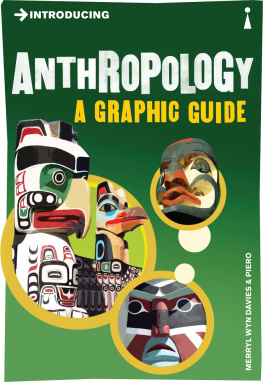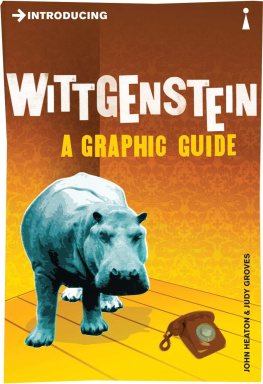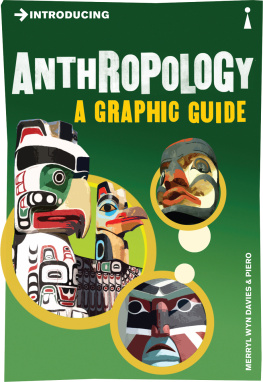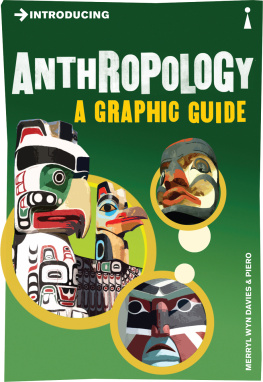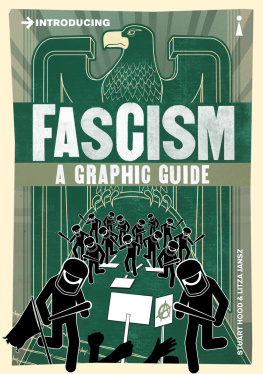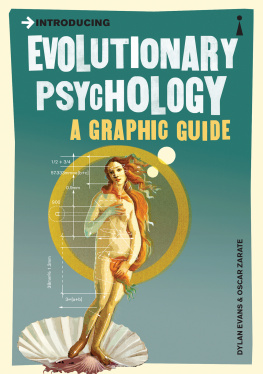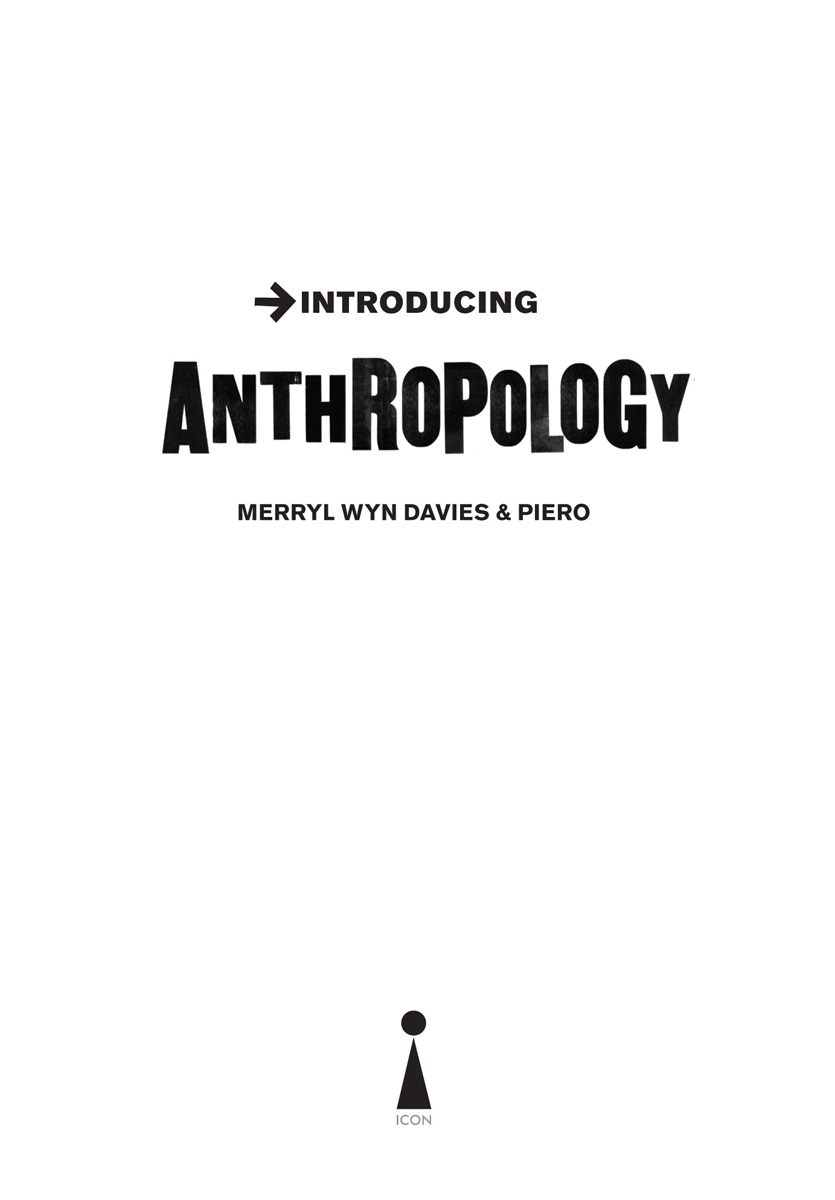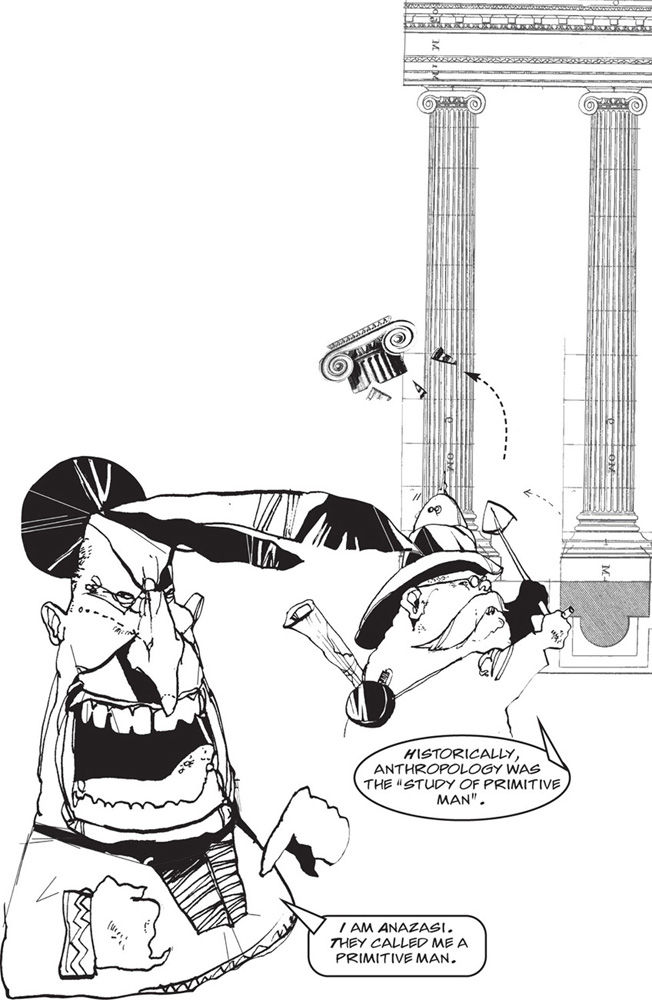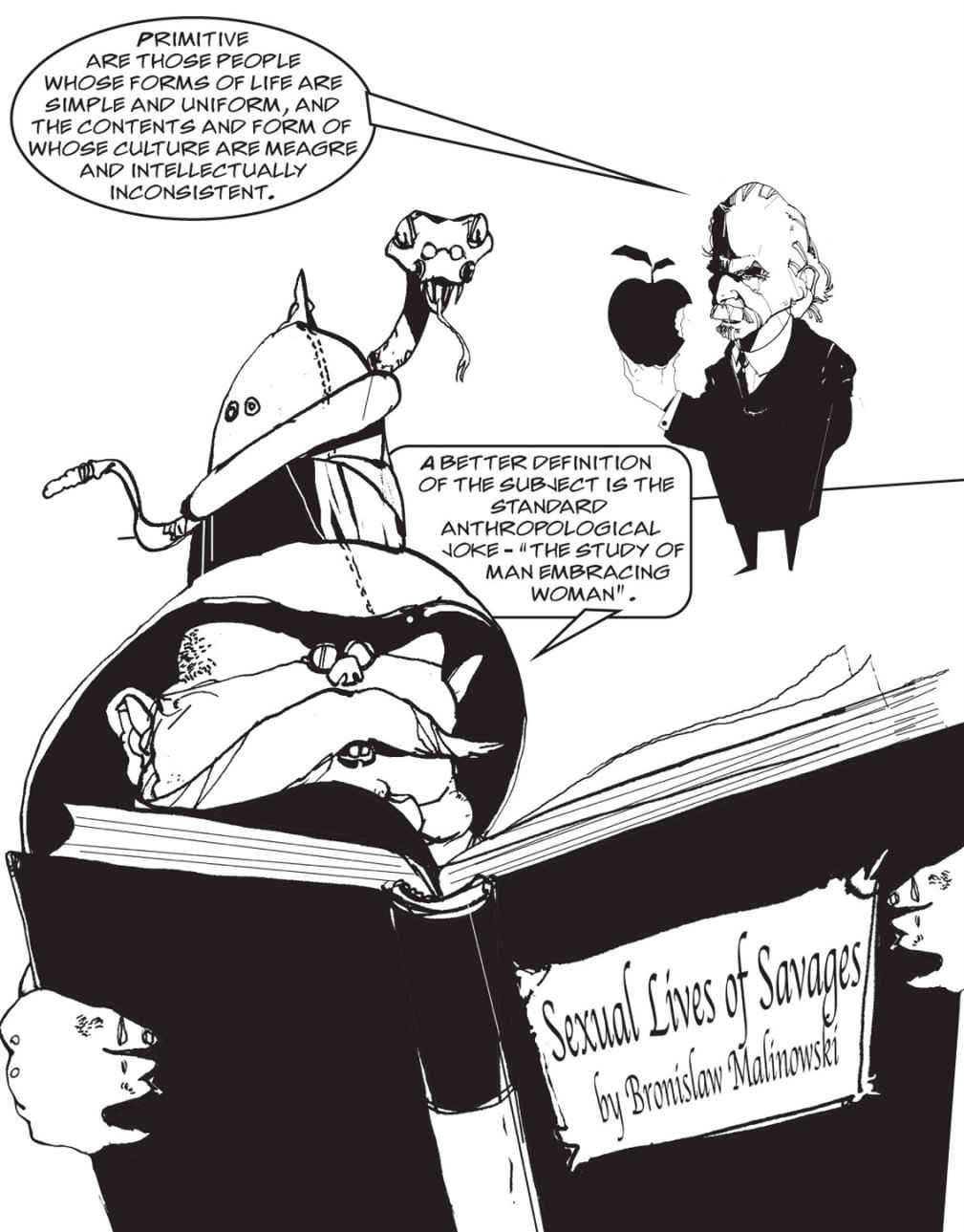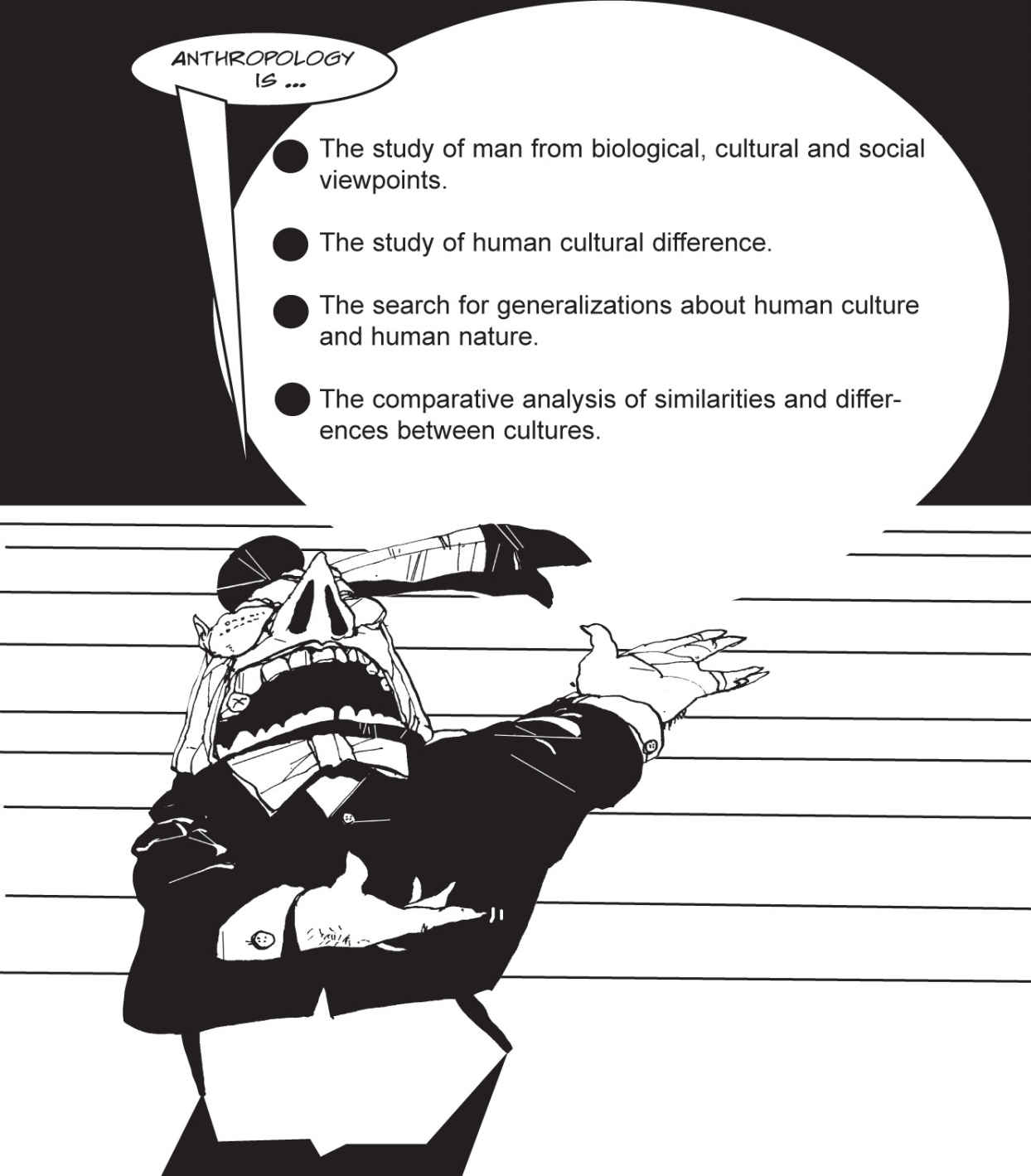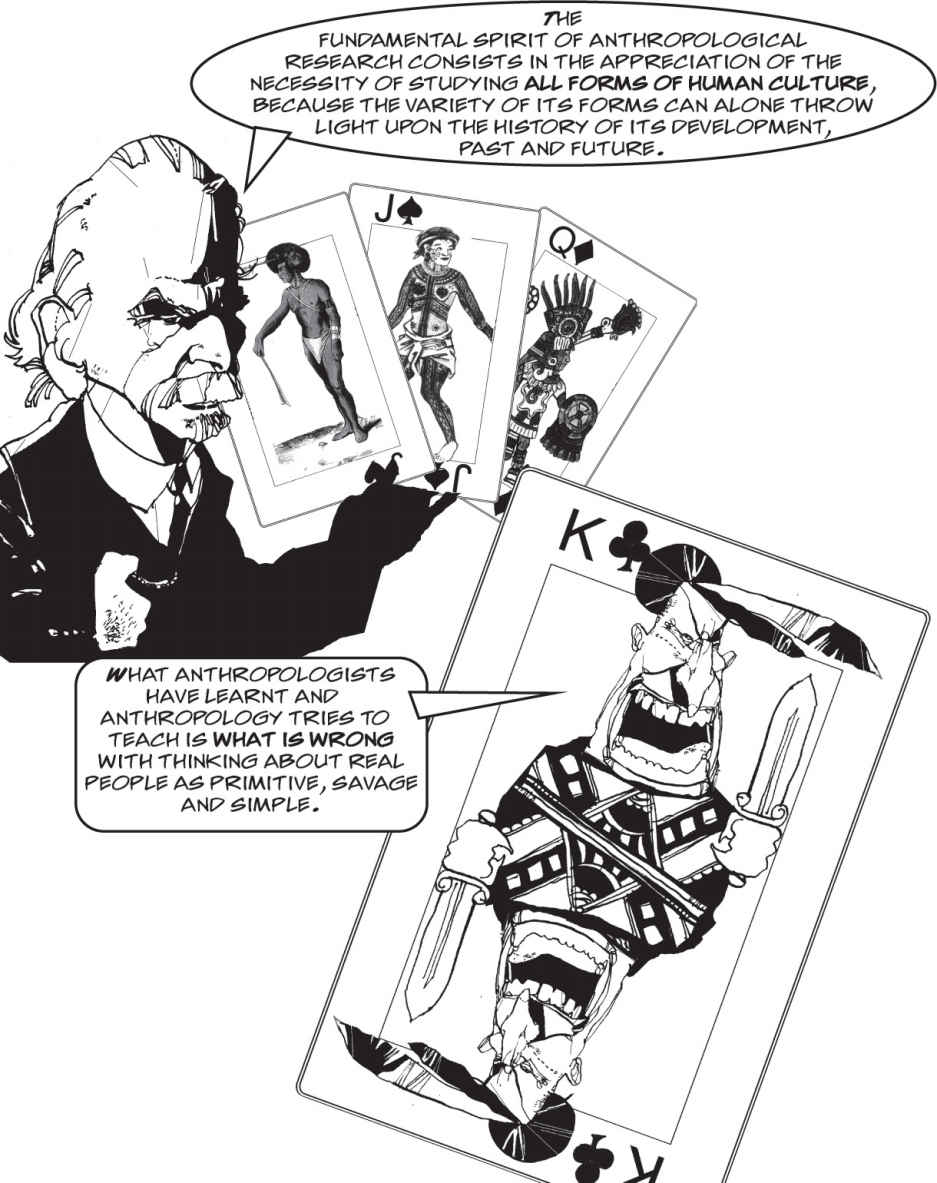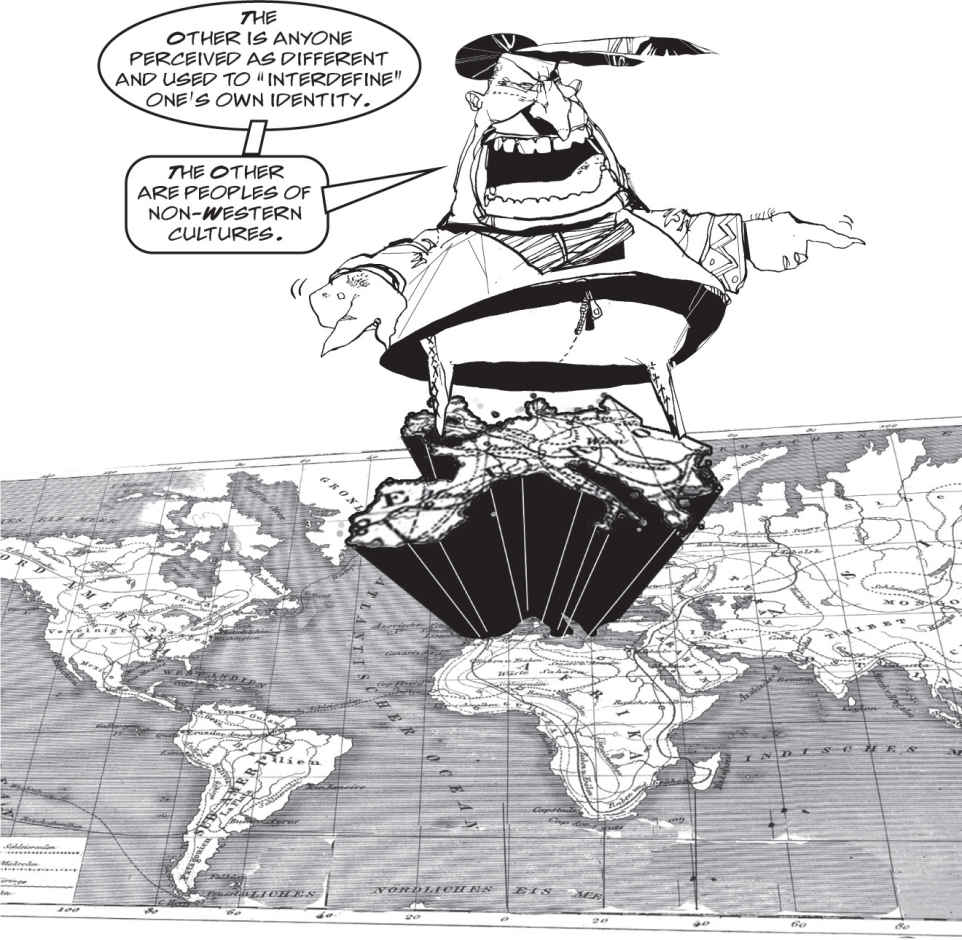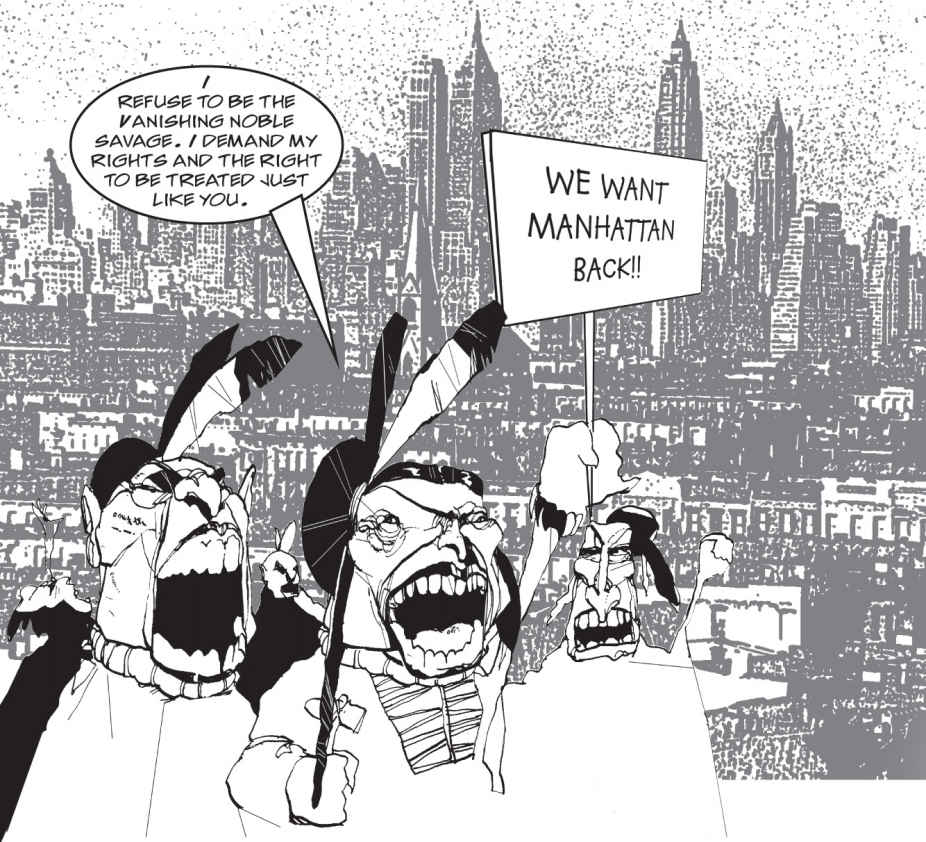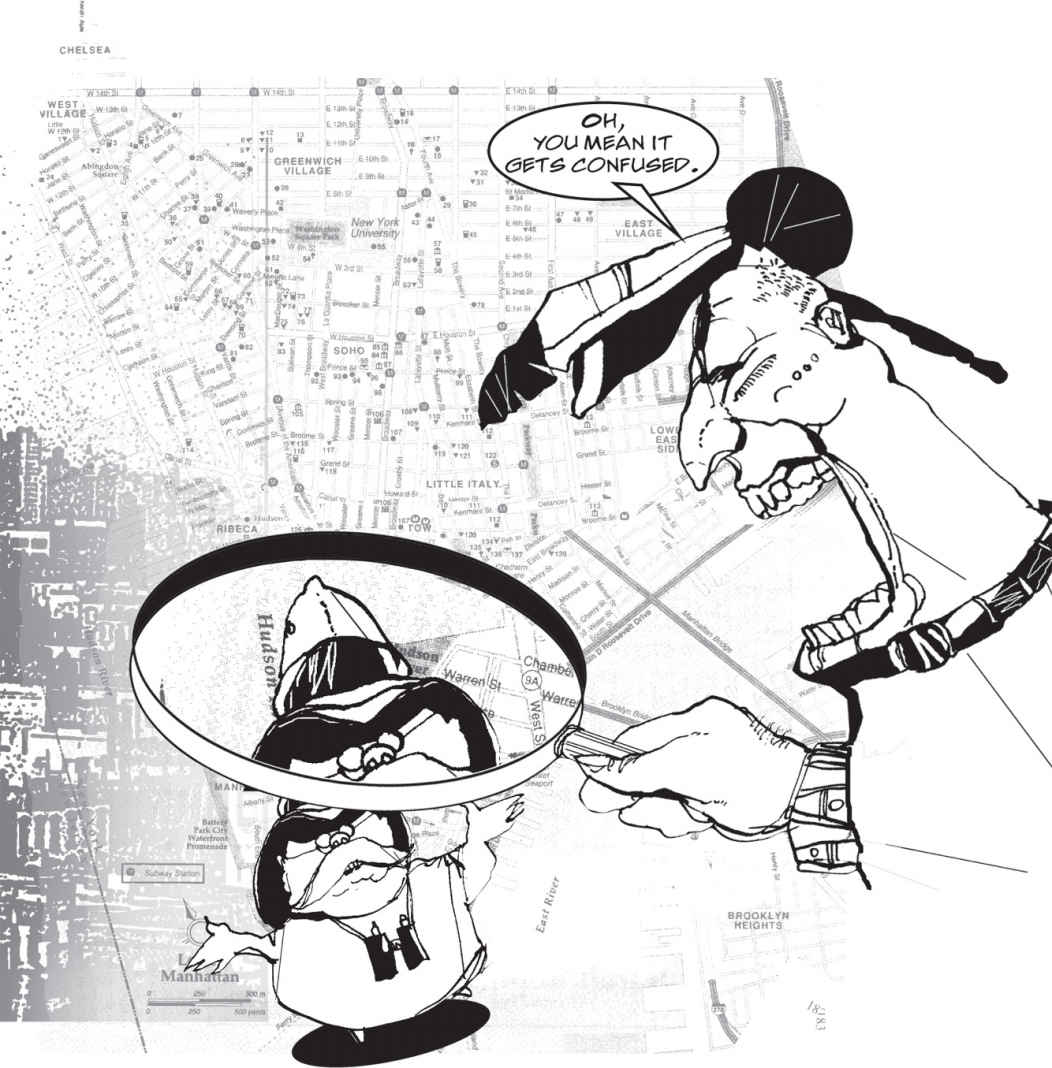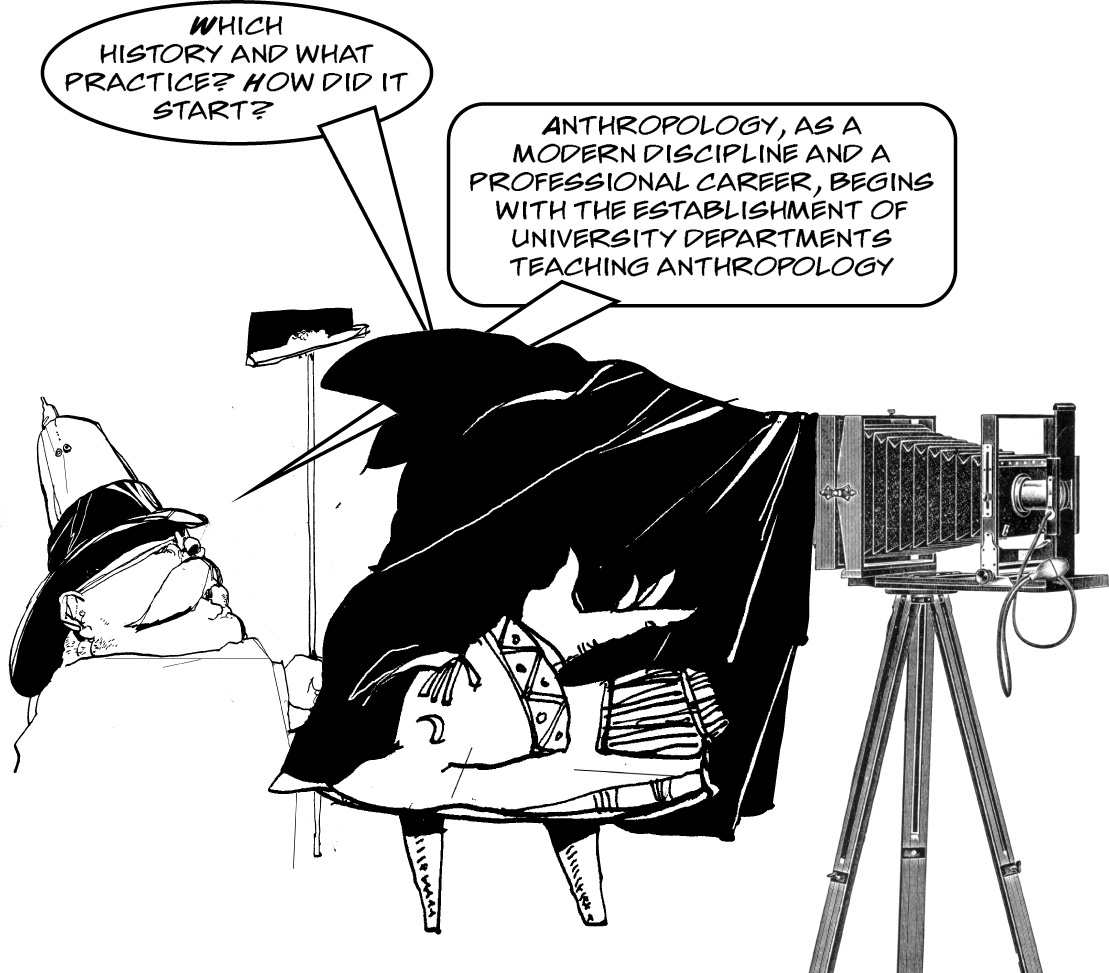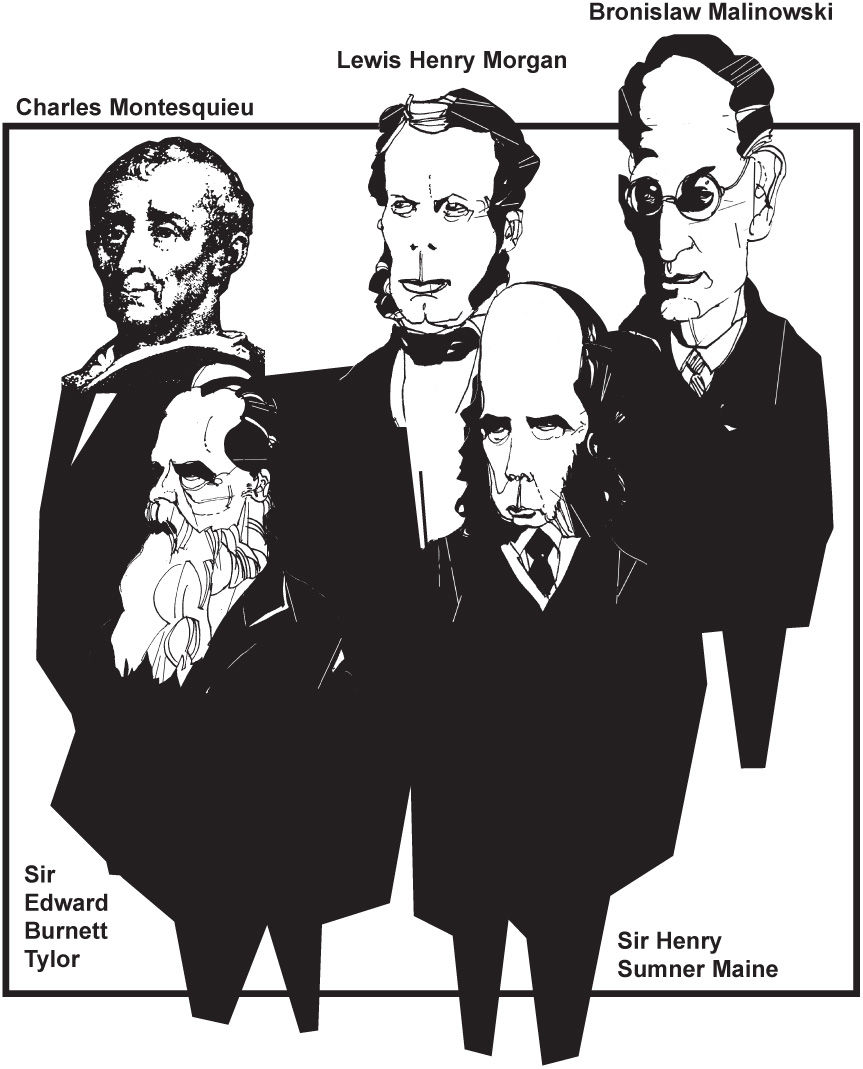Contents
Published by Icon Books Ltd, Omnibus Business Centre, 39-41 North Road, London N7 9DP
Email:
www.introducingbooks.com
ISBN: 978-184831-168-8
Text copyright 2013 Icon Books Ltd Merryl Wyn-Davis
Illustrations copyright 2013 Icon Books Ltd
The author and illustrator has asserted their moral rights
Originating editor: Richard Appignanesi
No part of this book may be reproduced in any form, or by any means, without prior permission in writing from the publisher.
What is Anthropology?
The word anthropology derives from the Greek and literally means the study of man or the science of man. But the man of anthropology was a special kind of man.
HISTORICALLY, ANTHROPOLOGY WAS THE STUDY OF PRIMITIVE MAN. I AM ANAZASI. THEY CALLED ME A PRIMITIVE MAN.
What is Primitive?
In The Mind of Primitive Man (1938), Franz Boas (18581942), founder of American Cultural Anthropology, told us just who are the primitives.
PRIMITIVE ARE THOSE PEOPLE WHOSE FORMS OF LIFE ARE SIMPLE AND UNIFORM, AND THE CONTENTS AND FORM OF WHOSE CULTURE ARE MEAGRE AND INTELLECTUALLY INCONSISTENT. A BETTER DEFINITION OF THE SUBJECT IS THE STANDARD ANTHROPOLOGICAL JOKE THE STUDY OF MAN EMBRACING WOMAN.
Studying People
Anthropologists study people. They study how people live, human society past and present. Anthropology is also about how we think about people thinking about people, now and in history. And sometimes it is about power relations between people, peoples, cultures and societies, colonialism and globalization.
ANTHROPOLOGY IS
The study of man from biological, cultural and social viewpoints.
The study of human cultural difference.
The search for generalizations about human culture and human nature.
The comparative analysis of similarities and differences between cultures.
Anthropologys Big Problem
The biggest problem in anthropology is how to talk about its object of study. Primitive, savage and simple are prejudicial, discriminating and supremacist terms. Yet they defined the people anthropologists were particularly interested to study and why they wanted to study them.
THE FUNDAMENTAL SPIRIT OF ANTHROPOLOGICAL RESEARCH CONSISTS IN THE APPRECIATION OF THE NECESSITY OF STUDYING ALL FORMS OF HUMAN CULTURE, BECAUSE THE VARIETY OF ITS FORMS CAN ALONE THROW LIGHT UPON THE HISTORY OF ITS DEVELOPMENT, PAST AND FUTURE. WHAT ANTHROPOLOGISTS HAVE LEARNT AND ANTHROPOLOGY TRIES TO TEACH IS WHAT IS WRONG WITH THINKING ABOUT REAL PEOPLE AS PRIMITIVE, SAVAGE AND SIMPLE.
The Other
Today, anthropology is defined as the systematic study of the Other, while all other social sciences are in some sense the study of the Self. But, who is the Other and who the Self?
THE OTHER IS ANYONE PERCEIVED AS DIFFERENT AND USED TO INTERDEFINE ONES OWN IDENTITY. THE OTHER ARE PEOPLES OF NON-WESTERN CULTURES.
In Reinventing Anthropology (1969), Dell Hymes wrote: the very existence of an autonomous discipline that specializes in the study of Others has always been somewhat problematic.
The Changing Problem
How anthropology deals with its problem is now a topic of heated debate internal to anthropology. And two other things have changed. First: the Other has changed. Non-Western societies have undergone rapid social change.
I REFUSE TO BE THE VANISHING NOBLE SAVAGE. I DEMAND MY RIGHTS AND THE RIGHT TO BE TREATED JUST LIKE YOU.
Second: anthropology has come home. It no longer exclusively studies non-Western cultures. Now anthropologists also study marginal cultures in Western societies as well as institutional and organizational cultures, such as business corporations, scientists and the police.
How does anthropology cope with these changes? It studies the history of anthropology itself, the assumptions of anthropologists past and present, the reactions of anthropologists past and present and it ponders whether anthropology tells us more about the Self than the Other.
OH, YOU MEAT IT GETS CONFUSED.
First, it is hard to say what it is the study of; secondly, it is not at all clear what you have to do to study it; and thirdly, no-one seems to know how to tell the difference between studying anthropology and practising it.
Tim Ingold, Professor of Anthropology, University of Aberdeen
The Origins of Anthropology
What makes anthropology anthropology is not a specific object of enquiry, but the history of anthropology as a discipline and practice. Henrietta Moore, Professor of Social Anthropology, London School of Economics
WHICH HISTORY AND WHAT PRACTICE? HOW DID IT START? ANTHROPOLOGY, AS A MODERN DISCIPLINE AND A PROFESSIONAL CAREER, BEGINS WITH THE ESTABLISHMENT OF UNIVERSITY DEPARTMENTS TEACHING ANTHROPOLOGY
In America, Boas began lecturing at Columbia University in 1896. In Britain, a new diploma in anthropology was introduced at Oxford in 1906. At the same time, the practice of anthropology was established as ethnography, the extended study of how people live, where they live.
The Founding Fathers
Alan Barnard in History and Theory of Anthropology (2000) names the French philosopher Charles Montesquieu (16891755) as the common ancestor of all modern anthropology. Anthropology begins in 1748 with the publication of his The Spirit of the Laws. It is a product of the Enlightenment.
Then comes the Darwinian horizon in the 1860s when great names Sir Henry Sumner Maine (182288), Lewis Henry Morgan (181881), Sir Edward Burnett Tylor (18321917) and Sir James Frazer (18541941) define the intellectual tradition that leads to modern anthropology. In 1871, the Anthropological Institute is founded in London. When Franz Boas,

